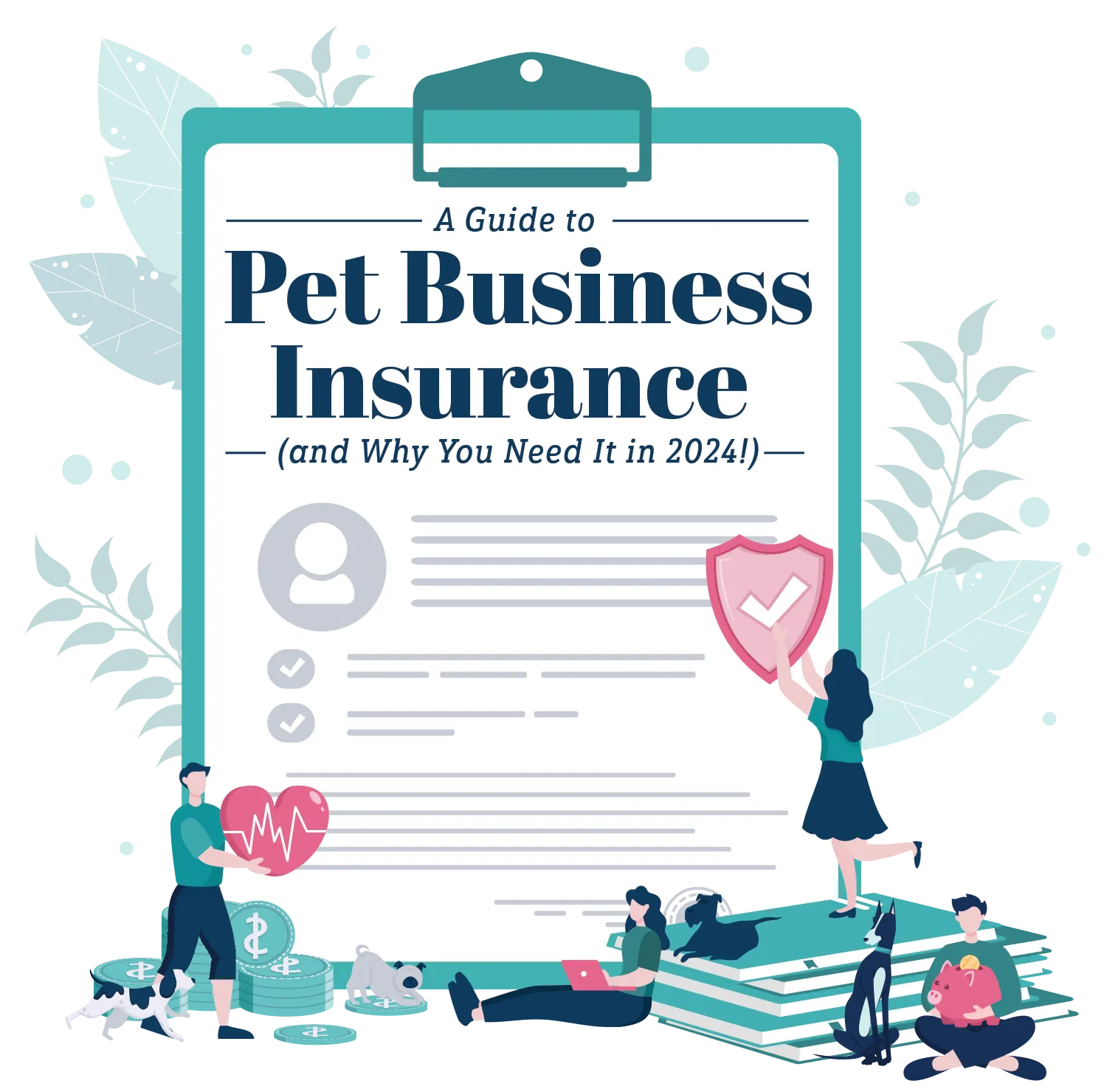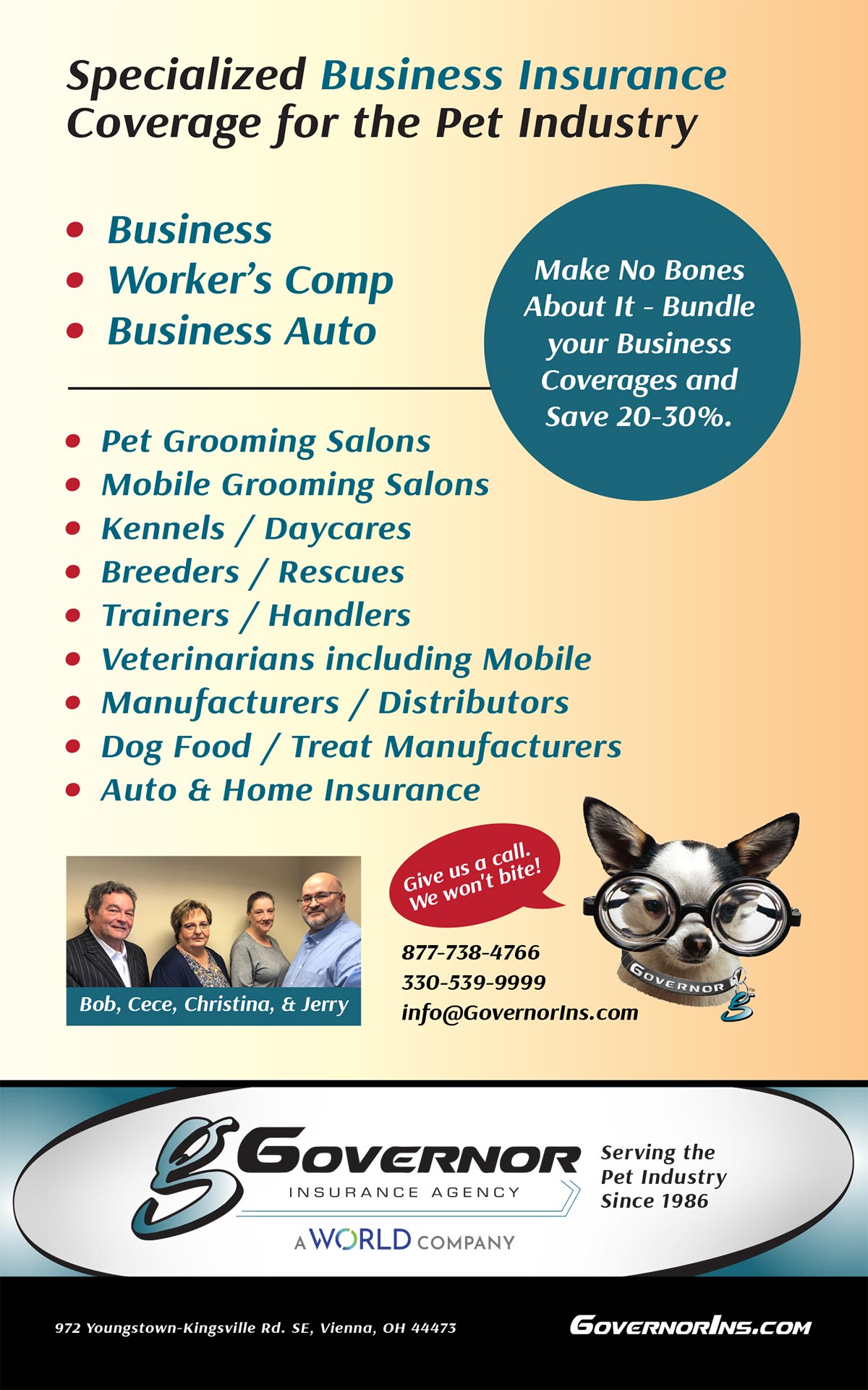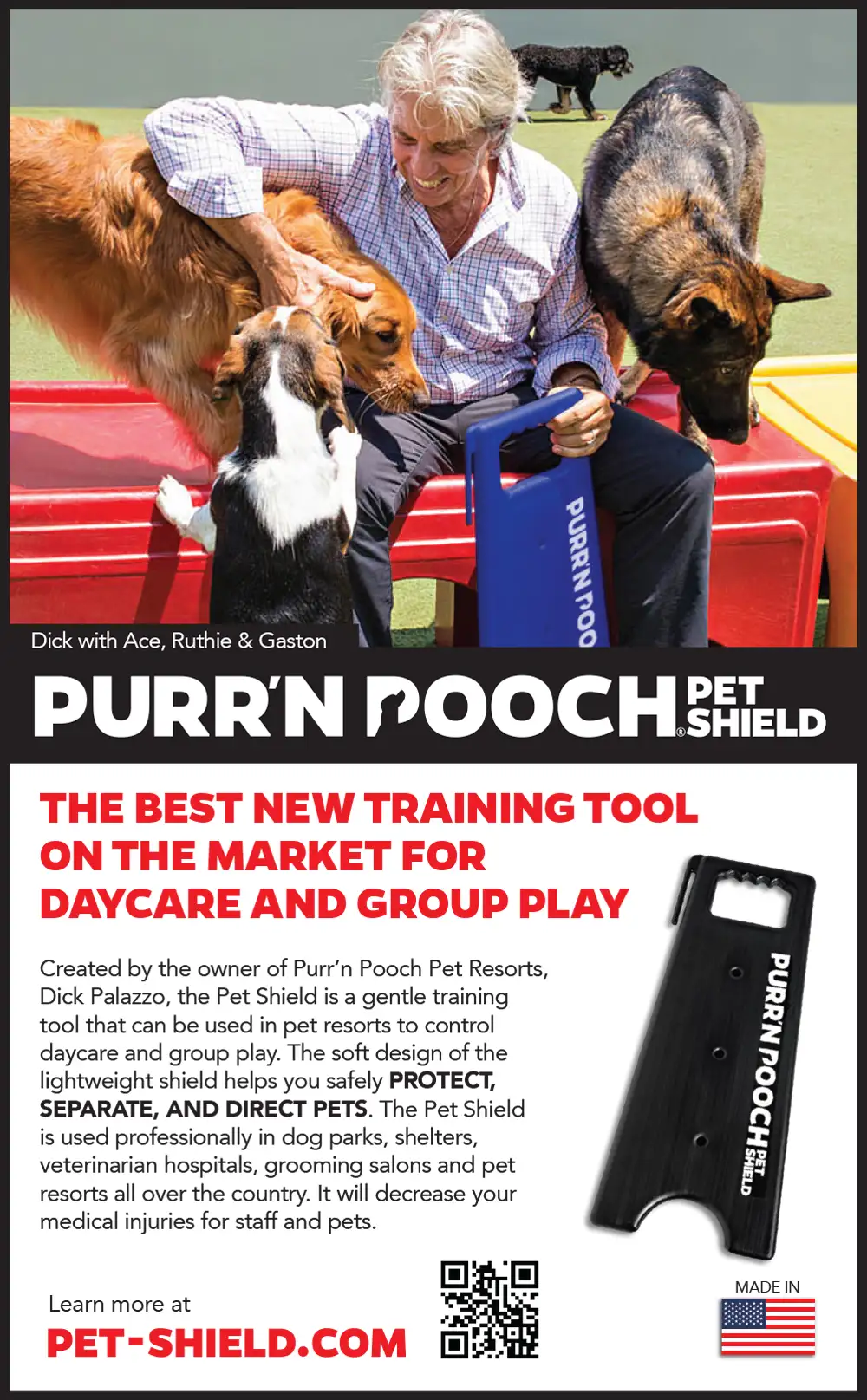
 ith the U.S. pet industry valued at nearly $80 billion in 2022 and expected to rise in the coming years,1 as a pet business owner, it’s key that you continue to look for ways to maximize revenue, adapt to customer demand, and improve efficiency and productivity within your organization as it grows. However, protecting your business from potential harm and financial loss is just as important.
ith the U.S. pet industry valued at nearly $80 billion in 2022 and expected to rise in the coming years,1 as a pet business owner, it’s key that you continue to look for ways to maximize revenue, adapt to customer demand, and improve efficiency and productivity within your organization as it grows. However, protecting your business from potential harm and financial loss is just as important.
Investing in insurance is a proactive step you can take to prevent and manage the inherent risks of owning a pet business. And, the right insurance can help recession-proof your business, allowing you to get ahead of costly issues. This article will serve as a guide for what you need to know about choosing or upgrading your pet business insurance policy.

- Pet injuries or illness. A pet is injured or becomes sick while in the care of the business. Insurance can help cover any medical costs or liability claims from the client.
- Property damage. For pet sitters, accidental damage to a client’s furniture or belongings is a possibility. In this case, business insurance would cover the cost of repairs or replacements.
- Injury of staff. Pet business insurance can cover medical expenses, liability claims and losses due to staff leave if employees are injured on the job.
- Theft or vandalism. Unfortunately, theft is an issue many businesses contend with. Insurance can assist you in purchasing new equipment and repairing any damages.
Why Invest In Pet Business Insurance?
Pet business insurance is a specialized type of insurance coverage designed specifically for businesses in the pet care industry. It protects these businesses from financial loss caused by risks and liabilities such as personal injuries, pet injuries, property damage and more. Like any other insurance coverage, it safeguards business assets in the event of an unforeseen accident or dispute.
Consider times when you’ve made a mistake at work, encountered a difficult situation or had a dispute with a client. Here are some scenarios you may have experienced in your business and how insurance helps mitigate them:
- Commercial liability insurance. Protects businesses from claims of injury or property damage as a result of their services or products (e.g., a client slips on spilled water at your facility).
- Professional liability insurance. Protects businesses from claims of negligence or inadequate work. For example, this policy would cover incidents like an altercation between two dogs.
- Property insurance. Covers a business’s physical assets when damaged by natural disasters, vandalism, theft or damage from another nearby business (e.g., a fire or leak).
Having business insurance shows that your organization is responsible and committed to long-term, sustainable success.
Determining your pet business’s coverage needs will help you choose one (or more) of the above policies, but you also need to consider the following key factors:
- Your budget. Decide how much your business can afford to spend on insurance. Balance affordability with quality to ensure you are buying policies with adequate coverage.
- Coverage limits. Assess the risks your business could incur and what may need to be covered as a result (e.g., medical and veterinarian costs, repairs and replacements of property, loss of income, and legal fees and settlements). Any policy you choose should cover each of these areas.
- Legal requirements. Some states require specific types of coverage and minimum liability limits. Check that your insurance provider and policy meet these guidelines before making a purchase.

- Research available providers online and narrow down your list to just a few options.
- Ask your peers for recommendations or advice about choosing a provider.
- Request a meeting with your top choices to ask the insurance agents questions and learn about how the policies work.
Pet business insurance will be there to cover any workplace accidents or disputes that occur, protecting you from hefty financial impacts. Additionally, the right policy will help you remain legally compliant, retain employees3 and provide more positive customer experiences. Remember to keep your unique services and offerings in mind when choosing a policy to ensure your business and financials are kept safe.
References:
- Pet Care Market Size, Share & COVID-19 Impact Analysis. Fortune Business Insights. https://www.fortunebusinessinsights.com/pet-care-market-104749
- Employee Recruitment: A Guide To Finding the Best Talent. RealHR Solutions. https://realhrsolutions.com/employee-recruitment/
- Employee Retention – Nonprofit Catalog. NXUnite by Nexus Marketing. https://nxunite.com/employee-retention/
Casey Dorman is the Sales Manager at Gingr, the leading software for pet care business owners. Originally from Indianapolis, Casey now lives in Colorado with his wife and dog, Dexter. His hobbies include hiking, skiing, and visiting local breweries.


